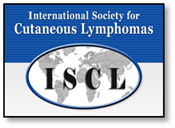
The Cutaneous Lymphoma International Consortium (CLIC) is a collaboration of international experts who are tackling the challenges involved in understanding and managing the treatment of cutaneous lymphomas.
CLIC’s first large-scale research project is the Prospective Cutaneous Lymphoma International Prognostic Index (PROCLIPI) study. It is designed to collect and share data on cutaneous T-cell lymphoma, which is characterized by heterogeneous clinical presentation, histopathology, and molecular features. CLIC brings together experts from various smaller organizations in Europe, Israel, Japan, Brazil, Australia, and the United States to collaborate on an unprecedented level to acquire large-sample data on this group of rare skin lymphomas. CLIC participants will collect data on the following aspects of each patient: clinical, pathologic, nodal, hematologic, genotype, treatment, and biobank samples. PROCLIPI has undertaken separate prospective studies on early-stage and advanced-stage mycosis fungoides, a common type of cutaneous T-cell lymphoma.
The CLIC study is evaluating treatment effects on disease and quality of life to determine which treatments are beneficial. Data on treatment include the type of treatment, the date started, the date stopped, and no treatment.
The PROCLIPI studies aim to develop a means of identifying high-risk patients for poor outcome and optimizing management, with the goal of improved survival and quality of life in mycosis fungoides/Sézary syndrome patients.
